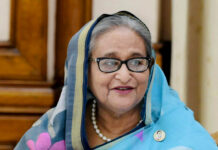
UGC online education directives fly in the face of global best practices
While private universities are continuing distance education to keep academic activities on track, the higher education regulatory body in Bangladesh continues to warn and threaten the universities not to do so, causing disquiet among stakeholders.
More and more higher education institutions across the world are opting for test-optional decisions to provide aspirant undergraduate students with greater flexibility because of the Covid-19 pandemic. Bangladeshi private sector operators are also on the same track.
To help aspiring students tide over the extraordinary challenges they are facing amid the Covid-19 pandemic, private universities are also considering temporarily adjusting to circumstances and relaxing admission requirements for undergraduate admission.
Many universities in Bangladesh have decided to enrol students for the summer semester without any admission tests on the basis of their SSC (Secondary School Certificate) and HSC (Higher Secondary Certificate) results.
Some universities are also assigning grades to students without holding semester finals, by determining the grades based on available semester assessments to save the students from getting caught in a session jam.
UGC lays down the law
But the move has displeased the University Grants Commission (UGC) that regulates the 105 private universities in Bangladesh.
The commission on March 23 initially urged all universities to continue classes online while asking them to shut down to curb the spread of the novel coronavirus pandemic.
But in two separate announcements on April 6 and April 10, UGC urged all private universities to stop online examinations, evaluation, and admissions amid the prevailing situation.
Only online classes would continue, it said, without explaining how the universities should complete their semesters or enrol new students, because the semesters cannot be completed without any examinations, creating session jam for students.
The higher education regulatory body has not organized any meeting with universities or made any consultation with them before making such a major decision.
“Private universities misused our direction for making their own benefits,” is how UGC Chairman Prof Dr Kazi Shahidullah explained the situation.
How exactly the private universities were acting for “their own benefits” he did not elaborate.
He added that the teachers cannot push anyone for mandatory attendance in online classes nor can make marks based on their attendance there.
“We allowed the universities for online education to keep the students in the track of academic activities, but holding examinations online may create pressure on them in such situation,” he opined.
The universities can only hold examinations or other admission activities if permitted by the Ministry of Education once the crisis is over, he said.
UGC member Prof Muhammed Alamgir said the private universities do not have experienced teachers and monitoring mechanism for online activities yet.
“It may allow students to copy in exams when those will be taken online. Also how the lab exams can be done online,” he questioned.
The UGC member said private universities are focusing only on business without considering the psychological situation of students, the facilities available to hold online exams, and the other hindrances associated with it.
The classes have been permitted to keep the students in touch with academic activities, but the full syllabus cannot be completed online, he said.
Call for review
The private universities, however, questioned the UGC move, pointing out that universities across the world are continuing academic activities online to mitigate the pressure on students.
Besides, the Private University Act 2010 also does not specify any rule for student enrolment.
“If the universities cannot complete the semesters, it will create a backlog which will lead to a rise in cost of education. Private universities, especially the newer ones, will incur a loss,” Association of Private Universities of Bangladesh (APUB) President Sheikh Kabir Hossain wrote to the UGC on April 8.
If not allowed, the universities will not be able to clear the salaries of the faculty and the staff, the letter added.
The association urged the UGC to review its decision and also called for discussions with stakeholders.
The APUB chairman said they are still in dark why the commission is against the move, ignoring the global best practices.
‘UGC move illogical’
The vice-chancellor (VC) of a leading private university, wishing not to be named, said the intention behind UGC taking such a move is not clear.
“Students were attending classes very attentively before the UGC issued separate notifications. These notifications, issued without any consultation with stakeholders, confused both students and universities,” he said.
The VC said the universities cannot continue online classes as at some point, evaluation of the students is mandatory.
“Globally, many universities do continue online education with exams and evaluations both. In Bangladesh, many universities already successfully operated online admission. So there will not be any problem,” he said.
The UGC should have sat with the VCs, academicians, and parents before making any such move, he opined.
According to the VC, with online education, students become busy with academic activities which refrain them from unexpected or unnecessary activities.
He hoped the UGC will allow universities to conduct fully the online academic activities — classes, evaluation and admission — to help the education continue and to help students keep busy in academic activities.
Noted academician Prof Syed Manzoorul Islam, an English teacher at Dhaka University, said the UGC move is not logical.
“First, the UGC should have discussed with the VCs before making any such move, but it issued three notices one after another without doing so. It has deepened the crisis,” he said.
The academician said the UGC could have asked universities not to charge money right now for new admission considering situation of many students, but there is no problem in taking admission online, as many private universities have been doing that for a long time.
“If a student fails to admit in a university during new semesters where he or she was planning to admit, it will put him into more uncertainty,” he opined.
He called upon the UGC not to play a role of controller, rather should play as a facilitator to help the sector overcome the present crisis.
“The UGC will sit with universities and parents, and find out a solution which is acceptable to all,” he hoped.
‘UGC requires no consultation with stakeholders’
Prof Mohammad Ali Naqi, VC of Stamford University Bangladesh, said no discussion or consultation had taken place with the authorities of private universities before the UGC made the new announcement.
“Nowadays, we have documentation of everything online, so there is nothing to worry about if exams are taken online. I hope they will review the decision and will consult us before making any new move,” he said.
On the other hand, UGC members Muhammed Alamgir and Prof Dil Afroza Begum said the commission does not need to consult with stakeholders for making a decision as it is a regulatory body.
They said the Section 46 (03) of the UGC Act allows it to make any decision instantly and circulate those to universities when required.
“Closing down educational institutions because of the Covid-19 pandemic is a government decision. Following the directive, we discussed with the Education Ministry and then requested universities to introduce online classes, but the private universities are continuously violating the order,” said Afroza.
“We do not need to talk to them. They did not inform us before they decided to introduce online exams when the directive was only for online classes,” she said, adding that the universities will face action if the directives are ignored.
Pointing out to the fact that it is not mandatory to speak to stakeholders for taking a decision, Afroza said the commission will only issue a letter allowing exams or admissions only if the ministry permits it.
Muhammed Alamgir said they will notify a guideline in May if the situation comes under control.
Dhaka Tribune tried to reach Education Minister Dipu Moni and Deputy Education Minister Mohibul Hassan Chowdhoury Nowfel for their comments over the phone, but they could not be reached.









